
If you are in Northern Ireland and you are a feminist you most likely know Kellie Turtle. She lives and breathes feminism, she is in the middle of rallies, grassroots organisations, social media debates and basically any initiative related to feminist activism. I have seen her doing stand up, I have seen her talking to hundreds of people in the rally for choice, I have seen her sitting next to Amanda Palmer, to Deborah Francis White in the guilty feminist, to a European big boss in Stormont, I have seen her owning every single one of those platforms and making people think. So I am beyond delighted to bring her words to the website for you all to hear more about her and what she is all about!

Activist, PHD student, Stand up comedian, mum...in your own words, who is Kellie Turtle?
It actually seems quite accurate! I am a feminist activist, I have been an activist for about 12 years, but I have been a feminist for much longer.
I am currently a Phd researcher, which I never thought I would do, but a project came across and It was just perfect for me, it is research on intersectional feminism and faith, which is a very important part of my background having been raised as evangelical Christian. I guess I had been slowly migrating away from some of the beliefs of my younger years, when I was in my 20s and at the same time I was discovering feminism: probably the twothings were related.
And yes, I also do stand-up comedy, mostly as an outlet. It is a fun space for me to express myself and I get to bring feminist ideas to the audience, which is a nice way to connect. I know that things that I say in comedy clubs couldn’t be said on social media without having huge backlash, so it is a nice, fun space to express myself and still be talking feminism.
I am also a mum, of a4-year-old and a 9-year-old and that is a huge part of my identity, and a massive part of what I think aboutfor 90% of my day!
Belfast Feminist Network is 10 years this year. I am sure it feels like yesterday, but so much has happened...what are the moments in its story that had the biggest impact on you?
The thing that has impacted me the most, when reflecting on these 10 years is the overall change that has occurred. Not so much the specific moments but the overall shift.
When I think about how it was when we were first setting up, trying to motivate people to meet in cafes to talk about the way women were portrayed in the media, for example…It seems like a different world! something has monumentally changed around gender, women, feminism…and I feel that locally we have had a big impact. Obviously, there has been a global movement, but locally we have held a very useful space here in Belfast and we have pushed for people to have difficult conversations and challenge the status quo.
I remember the first time I ever did a media interview about sexism in advertising, I was in the Radio Ulster studio, around 10 years ago, talking about a sexist billboard campaign that a local car company had commissioned. I remember using the phrase “rape culture", something I had been reading aboutin feminist blogs, and you could tell I was speaking alien to them; the presenters just couldn’t get over what I was talking about, and I tried to explain that we normalise viewing women as objects to be consumed by men and how that contributes to the power imbalance that sustains violence against women.
Back then thatwas something completely new and different but, in the recent inquiry on the justice system’s handling of sexual crime the independent report talked specifically about rape culture.
So we need to be proud of that, we were having those very radical conversations and trying to bring those concepts of power and gender to the mainstream, and we did it.
In 2012 we organised one billion rising in partnership with Women’s Aid. It was basically a flashmob dance, called "break the chains" to draw attention to the prevalence ofviolence of women and we got hundreds of women and girls, of all ages, involved. We got women from different generations, grannies, mothers, daughters all involved together, building community.
We performed it in different spaces, we did in Stormont to get the media and the politicians attention, we did it in St George’s market…but I think the most powerful one was in the evening, outside Belfast City Hall. There were not many people watching for that one, but we did that one for us. We danced and cried, and hugged and that moment somehow felt like the beginning of a new larger scale of BFN, we moved from a group of women meeting in cafes to be something bigger that could bring women together. That was a big highlight.
If you jump forward a good few years after, another key moment was organising the rallies around the rugby rape trial. It is a hard thing to speak about, but the reason I mentioned those is because there were very different, they were an outcry for people.
During the years we had been involved in organising different marches, rallies, events…but this was different, we didn’t apply for permission, it was nothing official, we just knew people needed to have space, to take the street, there was so much anger and hurt. We were the platform to make it happen in a safe way, we were giving the people that safe space to protest. And it was a very important moment, if people hadn’t taken the street, I don’t know if we would have seen the independent report that was commissioned. I think we have to give ourselves credit for being the vehicle that made that happen.
You have participated, and still do, in so many projects, all different but all with feminism at its core. How does the puzzle look like? What is the goal of each and the big impact of them that you have witnessed?
I have been involved in lots of grassroots organisations. Belfast Feminist Network, Alliance for Choice, WRDA, Reclaim the agenda, Rally for Choice and I support other colleagues and projects like Reclaim the Night, Raise Your Voice…There is a great activity and NI is brilliant in terms of the interconnection of grassroots activism, and what I feel that they all have in common is that they have social justice at the heart.
There are a lot of other feminist things happening too that I don’t tend to get involved in, things happening to get women ahead in leadership, breaking glass ceilings etc…and they are very important and need to happen but I will always be more involved in sticky floors, in things that call for social justice in an intersectional way.
Even if we have more women in boardrooms, the power dynamics that keep women in poverty, that keep women trapped in domestic abuse for lack of means, or how impossible it is for many women to access education or jobs because of the lack of childcare...these issues of economic inequality need to be tackled, so in those places is where you can probably find me.
As a super feminist mum of a boy and a girl what is your biggest challenge and what tip would you share?
I have a boy and a girl, and it is very interesting, it puts to the test your own internalised sexism. It is very easy to allocate their differences to their gender, somehow that feminist purism gets more complicated with your own kids.
I have a brilliant friend and she has 3 boys, all very different. She is great at reminding me that kids are all different and it has nothing to do with their gender.
My tips when educating feminists are:
If you want to raise feminist kids just teach them the values around being a good person. Kindness, respecting people’s personal boundaries,giving people another chance, putting other people’s needs in front of ours. That is what all of it is about at the end right?
It can be tricky because you want them to be nice and kind but also make sure that they know how to set boundaries for themselves. I want my daughter to have grace with others, but also to understand that she can set boundaries and defend her space.
It’s also important to teach them about power and how it operates in the world. I am doing this with my 9-year-old because she is old enough to start understanding that the world is set up to benefit somepeople over others. I want to raise them to be conscious of that and invite them to be disruptive.
The other very important thing is that we - feminist mums- need to remember is that the feminism that our kids are going to experience and grow into is going to look very different from the one that we are experiencing, and it is going to be our time to learn from then.
I have seen some older feminists struggling with the new ways and concepts and I know I will also have to adapt as my kids teach me how the world is for them.
What is Feminism for you?
Feminism for me is radical resistance to the status quo. A political ideology that if it were perfectly activated would bring the end to patriarchy, and with it the end of capitalism and it would completely revolutionise the world aswe know it.
For me feminism is huge, and because it is intersectional it comes hand in hand with social justice in terms of class, race, the environment… it is a full revolution that should free us all, that would change the whole power structure and would crash everything. And you know, that is ok.
Which “everyday sexism” really bothers you?
Women being murdered, women being abused, women being raped. I know that it is not the aim of the question, that the intention of the question is to talk about microaggressions, but the reality is that the big things are happening every day in this country.
I think the phrase "everyday sexism" makes sexism look less important than it is but those are the things happening, those are the things that I think of and the ones that make me do what I do and live to fight another day.
Do you remember when you start identifying as a Feminist and why?
I don’t remember an exact moment; I think it was always part of my curiosity about the world to think “why arewomen treated differently?” but I guess I didn’t fully understand it until I was a youth worker at the age of 22 and I was sent on a course called “working with young women” by the organisationYouth Action.
They taught us to apply a feminist lens to our community developmentwork, and to me, it resonated because it was an approach to feminism thatworked for the women inmarginalised communities bearing the brunt of gender and economic injustice and it always stayed with me.
Who is your biggest feminist role model?
I don’t really do role models that stick with me, I tend to come across new people all the time that I learn lots from. At the moment I am very immersed in my PhD and am very inspired byone of the founders of thereproductive justice movement, Loretta Ross. She has brought a critique of the pro-choice movement in America and the dominance of white middle-class women who spoke a language and proposed measures that wouldn’t apply to, for example, women in poor black communities because of their completely different reality dictated by structural racism and capitalism.
SoLoretta Ross would be my current role model, I love how she is an activist first and foremost and also an academic.
What is your favourite Feminist quote?
"I am not free while any woman is unfree, even when her shackles are very different from my own"- Audre Lorde
Since the rapid growth in the BLM movementI have been reading and listening to more black women, something that we should all be doing anyway of course. I am at a place where Ithink that white women need to step away and Black women should be the ones leading the movement. To be honest, the more I learn aboutBlack feminism the more I believe it is just superior to anything I have ever encountered as a white feminist, much more radical and much more complex and nuanced.
What is your proud feminist victory?
Because of what feminism is for me, in terms of how big it is and how complex and radical, I feel that nothing yet has been big enough to be worthy of being super proud of. But I guess I have to highlight the success we’ve had on abortion rights in NI, not as a victory of one side or ideology over another. But because of the effect that it is going to have for so many women from now on. It will change their lives.
What is your feminist recommendation?
- Book: Trust Women: A Progressive Christian Argument for Reproductive Justice by Rebecca Todd Peters
- Tv show: Captain Marvel, especially for kids.
- Film: Better Things, created by Pamela Adlon. It is about the realities of motherhood, pouring yourself into your kids every day while trying to figure out how not to lose yourself. It is also hilarious
What is your feminist call of action to whoever is reading?
I know this is not ending with a very positive note, but I feel concerned about how much the backlash against feminism is growing, the same way it is happening against BLM.
Right-wing politics and activism, almost fascism, is being taken up by a lot of people, so my ask is to be prepared for another fight. We have seen such a big change in the last 10 years and it seems easy to rest now, but there is a big fight round the corner, and we need to work together.
Don’t shy away from conversations, get people with inclusive ideas before the other ones get to them. Check your network and call people in before you have to call them out.
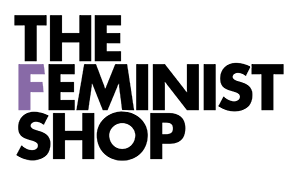
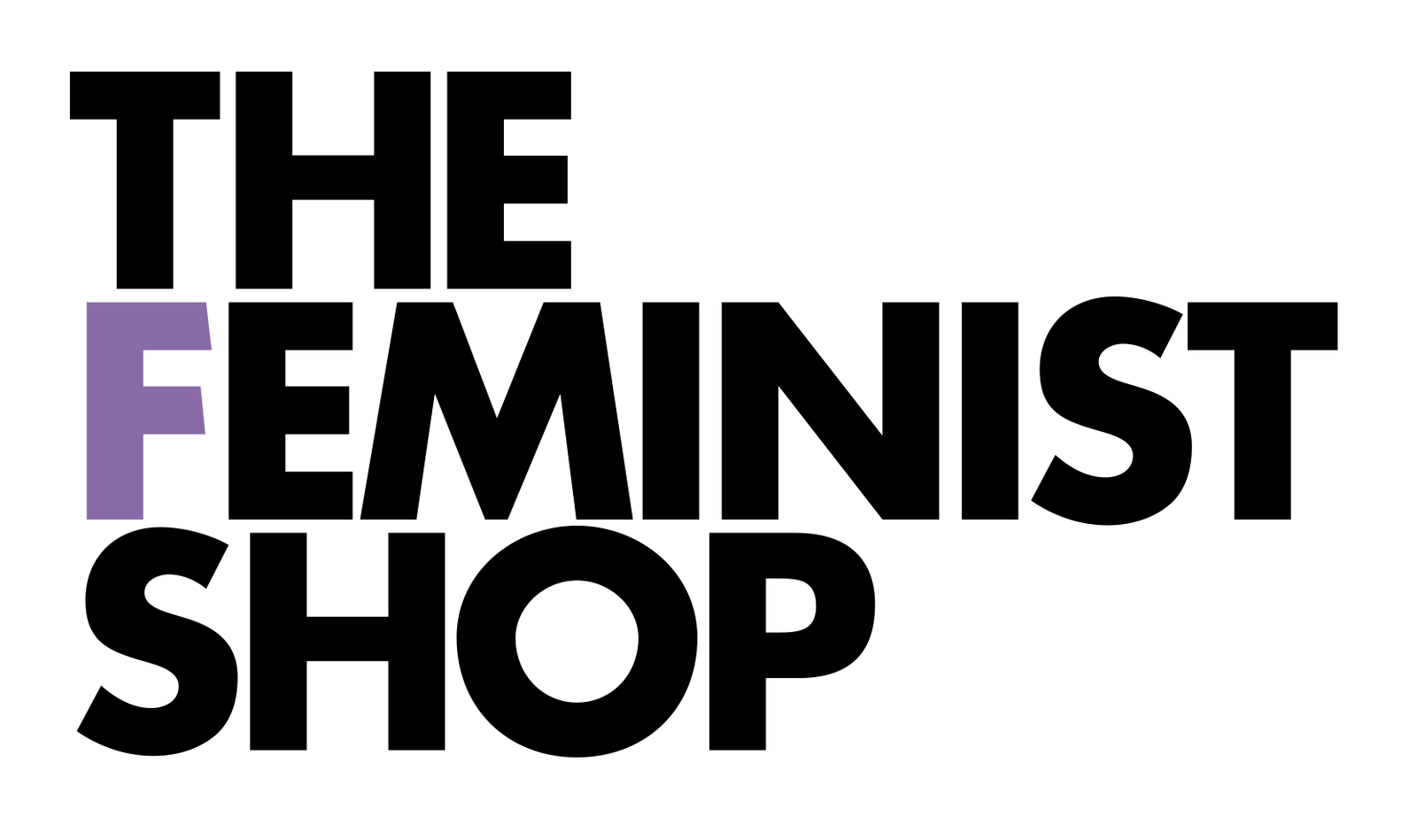




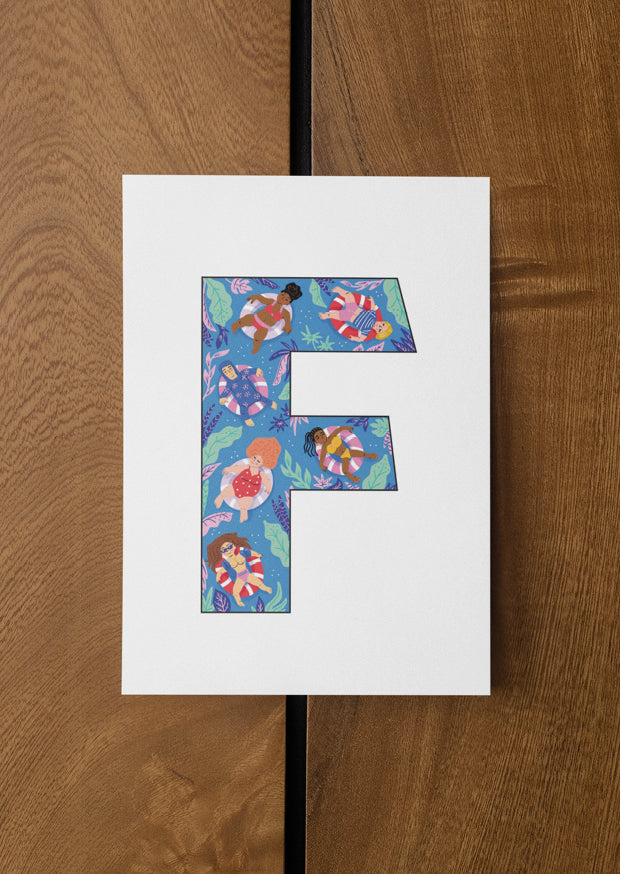
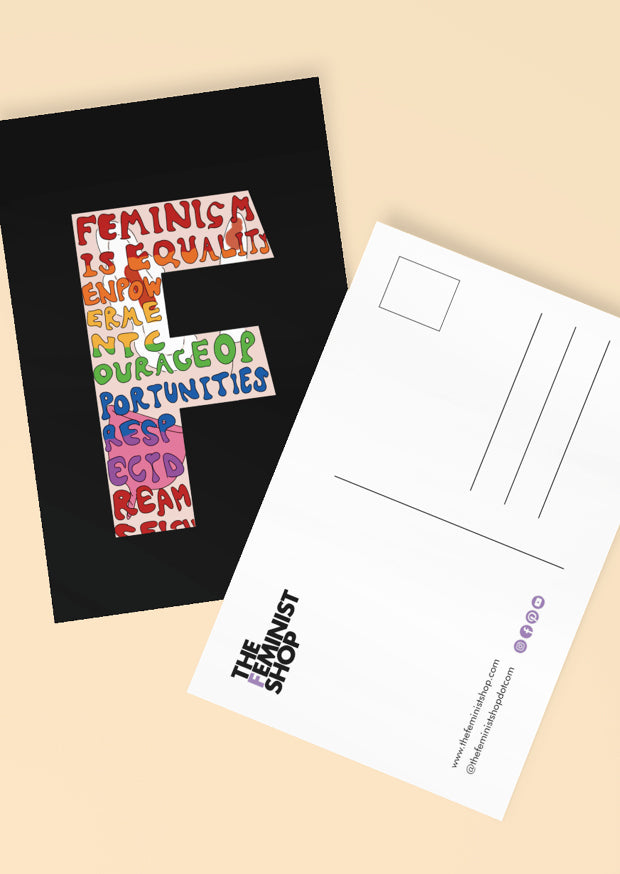
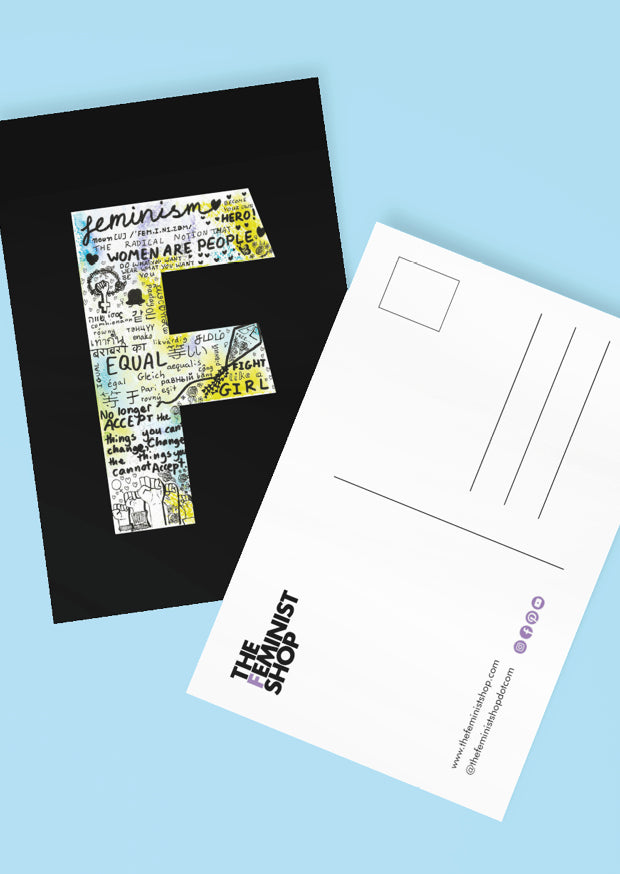



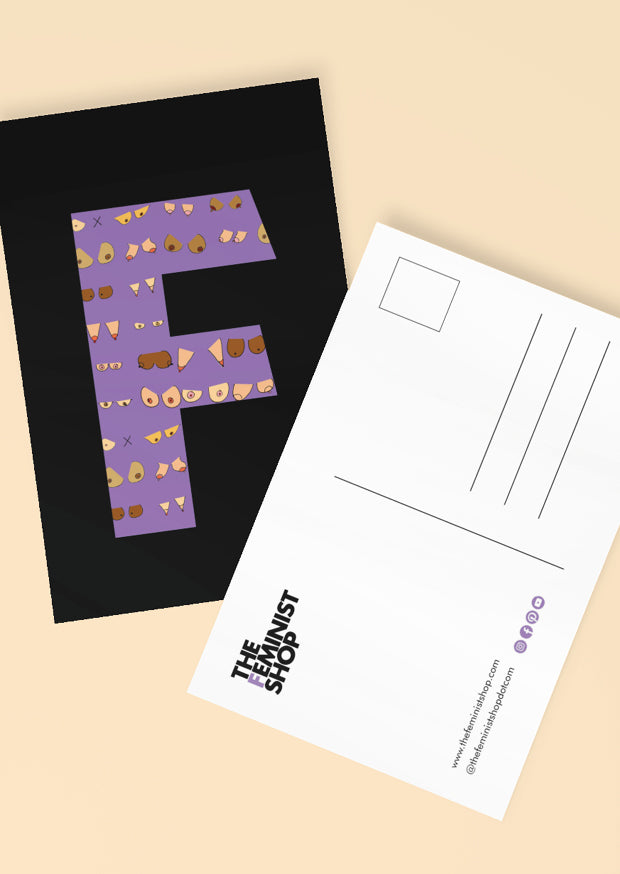
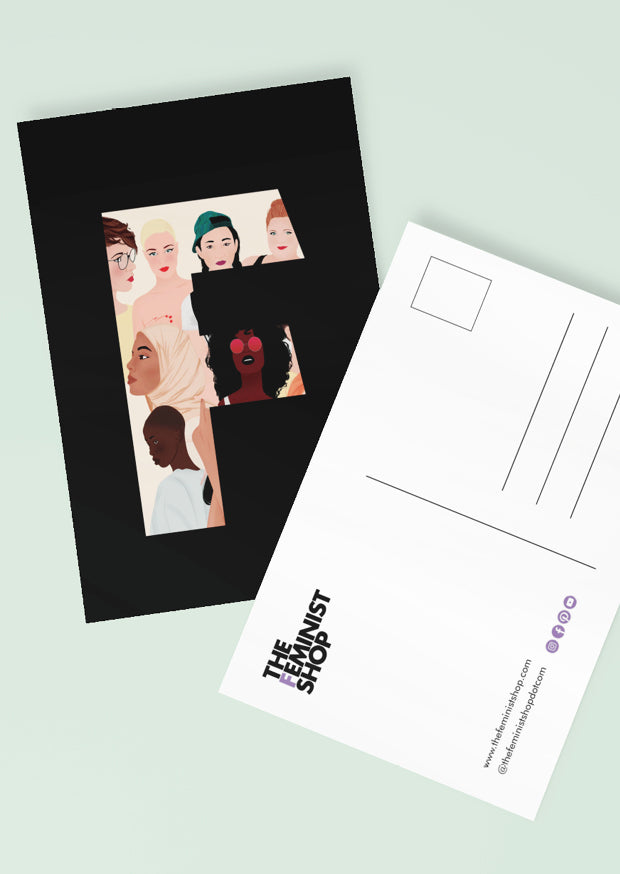
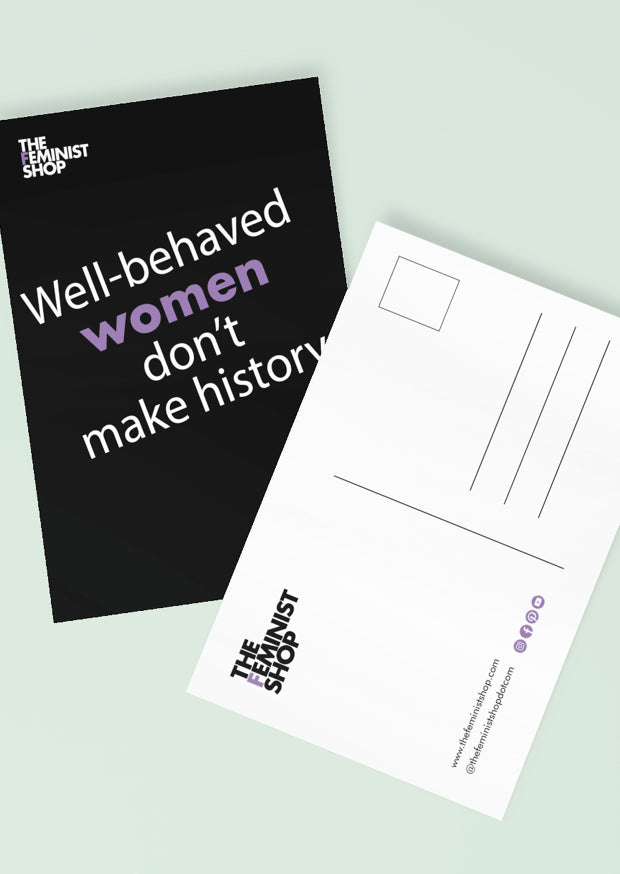
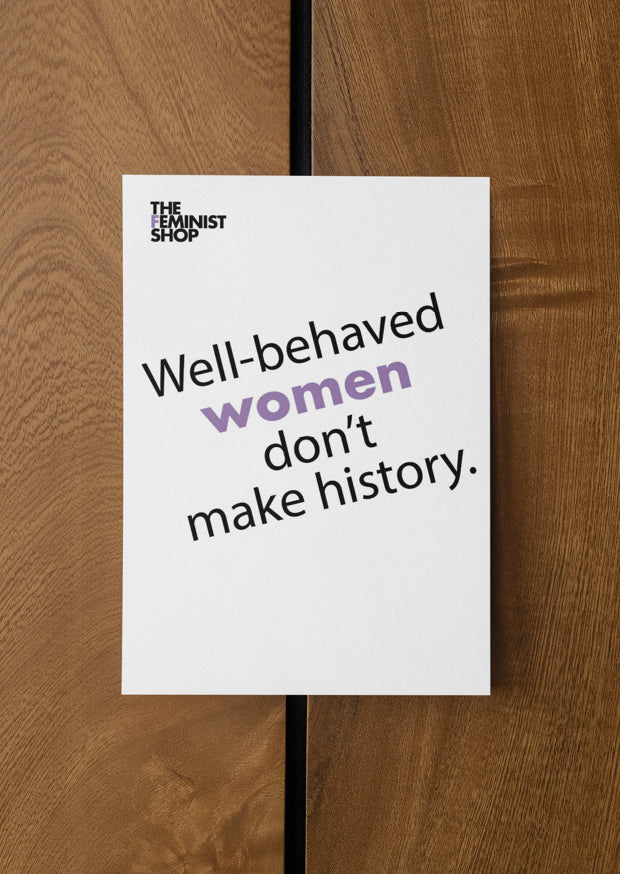
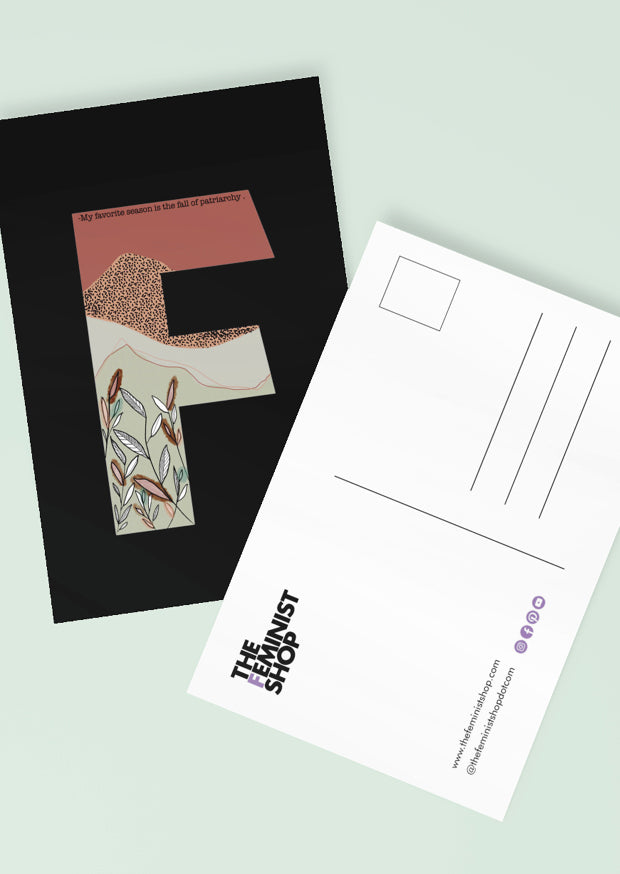
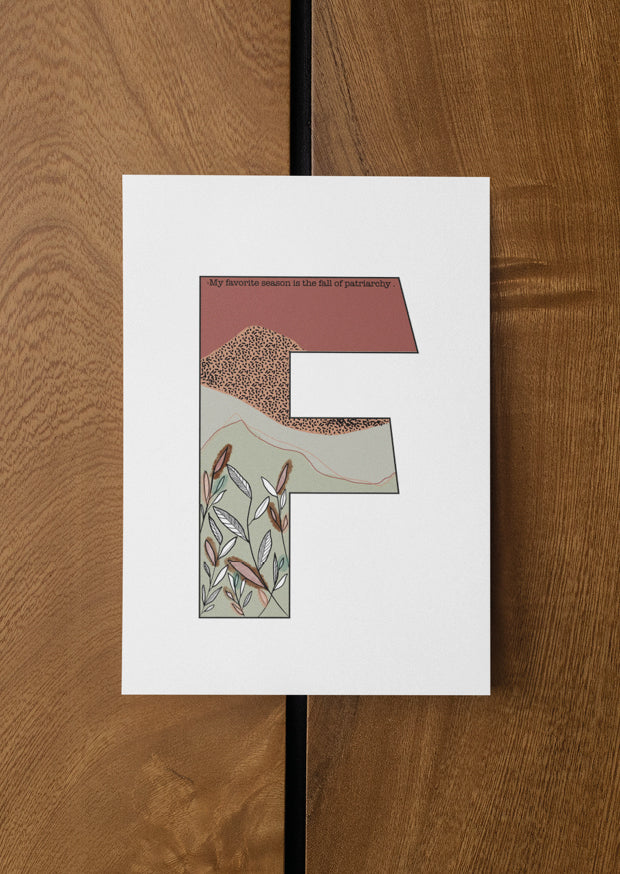

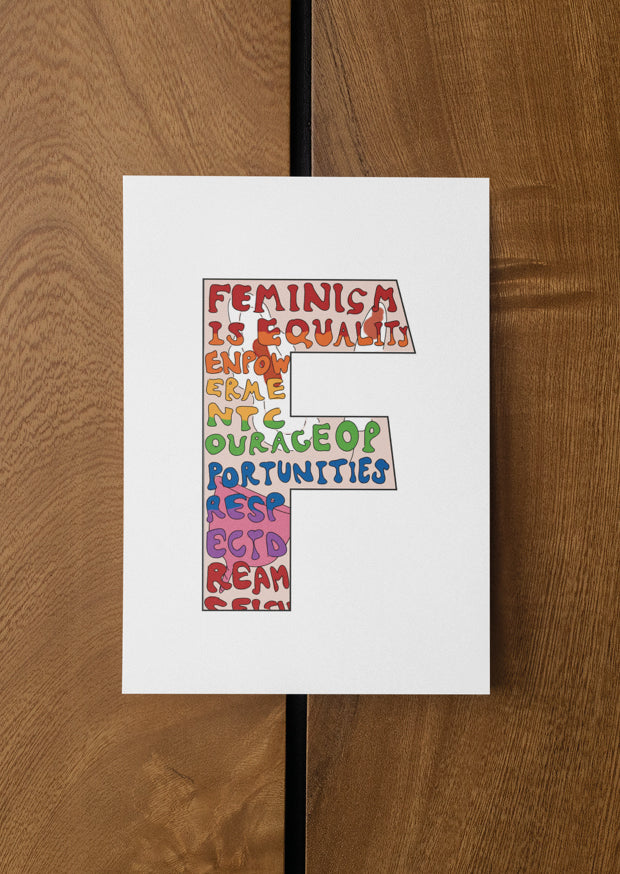
Leave a comment (all fields required)